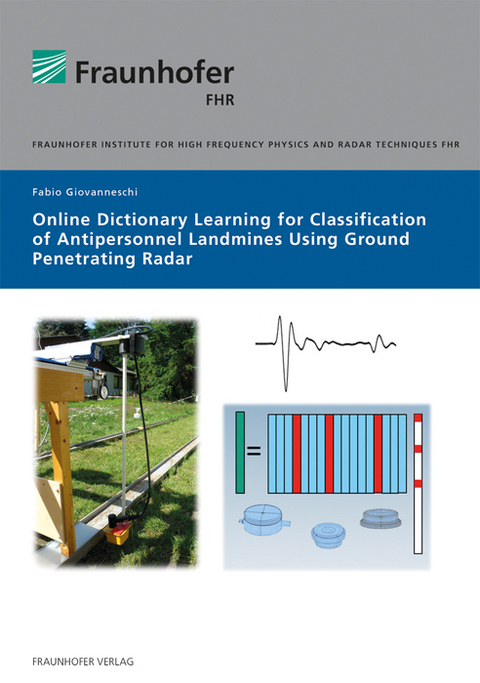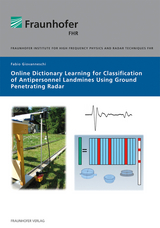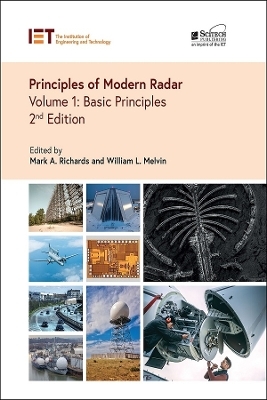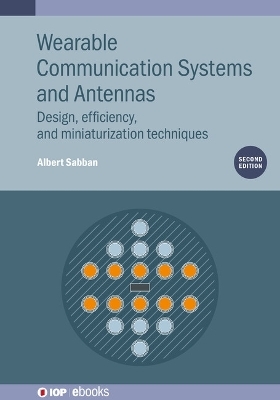Online Dictionary Learning for Classification of Antipersonnel Landmines using Ground penetrating Radar
Seiten
This work presents Online dictionary learning (DL) methods for landmine classification using Ground penetrating radar (GPR) data. A novel Drop-Off MINi-batch Online Dictionary Learning (DOMINODL) is also developed. Experiments with real L-band GPR data show that the proposed method reduces learning time by 36-93%, increases accuracy by 4-28% over state-of-the-art DL approaches and outperforms a Convolutional Neural Network (CNN) classifier.
Ground penetrating radar (GPR) target detection and classification is a challenging task. Here, online dictionary learning (DL) methods are considered to obtain sparse representations (SR) of the GPR data to enhance feature extraction for target classification via support vector machines. Online methods are preferred because traditional batch DL algorithms are not scalable to high-dimensional data. A Drop-Off MINi-batch Online Dictionary Learning (DOMINODL) method, which exploits the fact that a lot of the training data may be correlated, is also developed. For the case of abandoned anti-personnel landmines classification, the performance of K-SVD is compared with three online algorithms: classical Online Dictionary Learning, its correlation-based variant and DOMINODL. Experiments with real data from L-band GPR show that online DL methods reduce learning time by 36-93% and increase mine detection by 4-28% over K-SVD. DOMINODL is the fastest and retains similar classification performance as the other approaches. For the selection of optimal DL input parameters, the Kolmogorov-Smirnoff test distance and the Dvoretzky-Kiefer-Wolfowitz inequality are used.
Ground penetrating radar (GPR) target detection and classification is a challenging task. Here, online dictionary learning (DL) methods are considered to obtain sparse representations (SR) of the GPR data to enhance feature extraction for target classification via support vector machines. Online methods are preferred because traditional batch DL algorithms are not scalable to high-dimensional data. A Drop-Off MINi-batch Online Dictionary Learning (DOMINODL) method, which exploits the fact that a lot of the training data may be correlated, is also developed. For the case of abandoned anti-personnel landmines classification, the performance of K-SVD is compared with three online algorithms: classical Online Dictionary Learning, its correlation-based variant and DOMINODL. Experiments with real data from L-band GPR show that online DL methods reduce learning time by 36-93% and increase mine detection by 4-28% over K-SVD. DOMINODL is the fastest and retains similar classification performance as the other approaches. For the selection of optimal DL input parameters, the Kolmogorov-Smirnoff test distance and the Dvoretzky-Kiefer-Wolfowitz inequality are used.
| Erscheinungsdatum | 04.05.2021 |
|---|---|
| Zusatzinfo | num., col. illus. and tab. |
| Verlagsort | Stuttgart |
| Sprache | englisch |
| Maße | 148 x 210 mm |
| Themenwelt | Technik ► Nachrichtentechnik |
| Schlagworte | B • Deep learning • Dictionary Learning • Elektrotechniker • Fraunhofer FHR • Geophysics • Geophysiker • Ground Penetrating Radar • Informatiker • machine learning • Mathematiker • Radar target classification • Signal Processing • sparse coding • Telekommunikationsingenieur • Telekommunikationsingenieure |
| ISBN-10 | 3-8396-1675-1 / 3839616751 |
| ISBN-13 | 978-3-8396-1675-8 / 9783839616758 |
| Zustand | Neuware |
| Informationen gemäß Produktsicherheitsverordnung (GPSR) | |
| Haben Sie eine Frage zum Produkt? |
Mehr entdecken
aus dem Bereich
aus dem Bereich
Basic Principles
Buch | Hardcover (2023)
Institution of Engineering and Technology (Verlag)
149,60 €
Buch | Hardcover (2022)
Institution of Engineering and Technology (Verlag)
179,95 €
Buch | Hardcover (2022)
Institute of Physics Publishing (Verlag)
149,60 €




